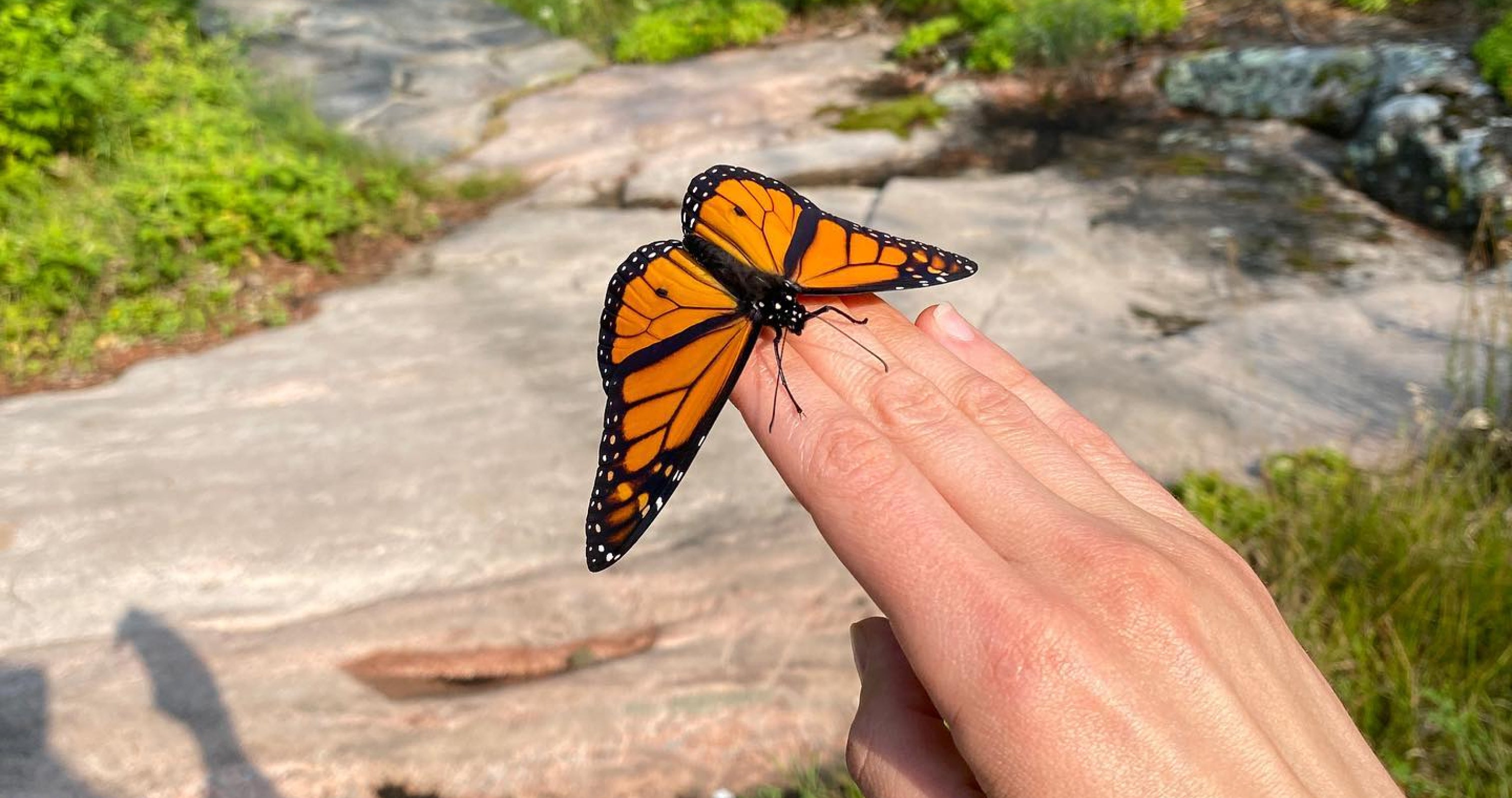
Sustainability
A fulsome approach
From our sourcing methods and packaging practices to the team we staff and the organizations we support — true sustainability can’t be contained to our earthly environment alone.
Here’s what we’re doing to spread mushroom healing and education to as many people as possible in the most sustainable way possible.
Our Certifications
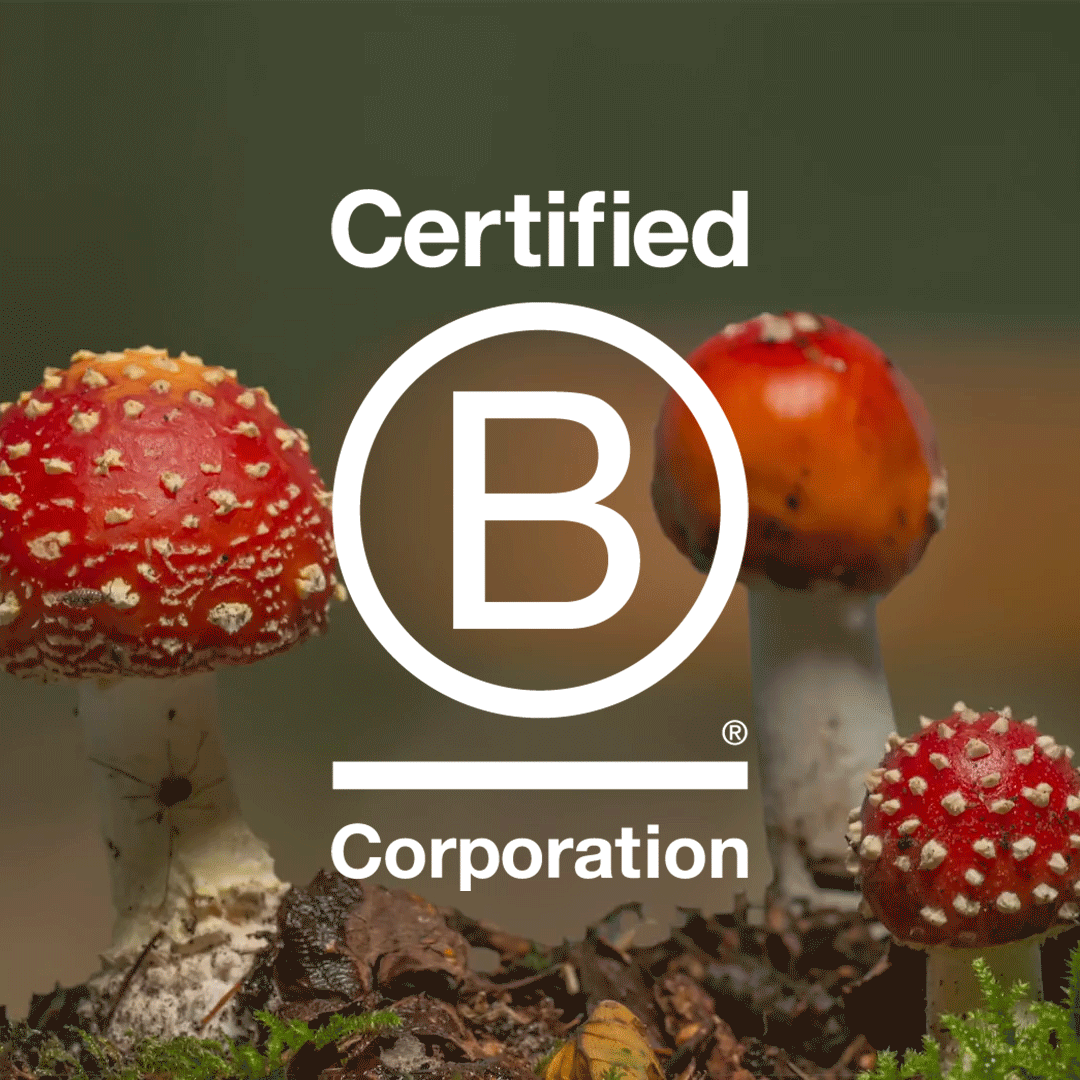
Out of 215 million companies worldwide, only around 4000 are B Corps.
Our B Corp Certification means we meet the highest standards (!) for social and environmental performance. We’ve worked toward this certification since our launch in 2018, and it’s our guide and proof point that we are walking our talk and raising the standards for our company and the industry at large.
B Corp Values within our company
Our certification shapes and impacts:
- Our legal structure
- How we care for our people, the humans behind Rainbo
- The integrity and transparency of our supply chain
- Our customers and community
- The people who do not yet have access to our products but who we aim to impact
- The very products we create and their ability to fortify and expand your mind, body, and spirit
- The planet
Collapsible content
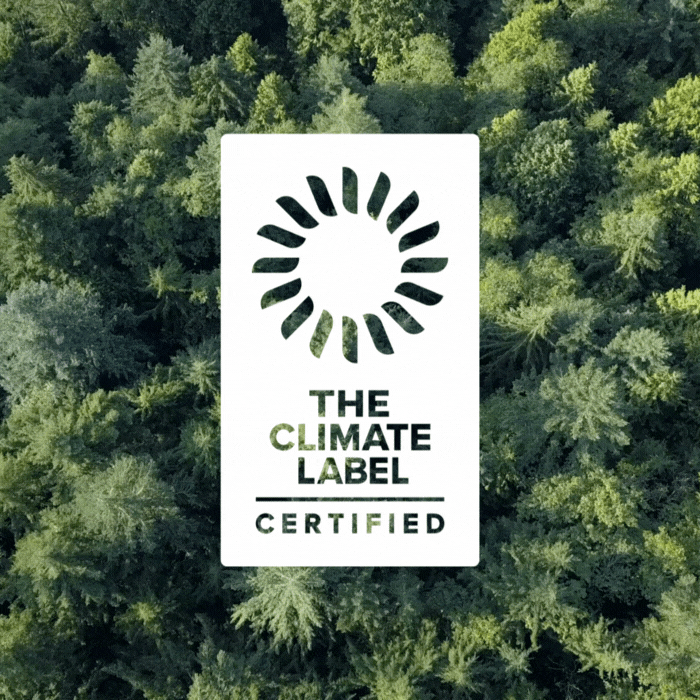
As a Climate Neutral Certified brand, we offset Rainbo’s entire annual carbon footprint each year.
Since 2020, we have offset 1,230 tonnes of Rainbo’s CO2 emissions by supporting various land conservation and carbon drawdown projects across the globe.
2022
Measure
We measured our 2022 carbon footprint at 529 tCO2e and offset this entirely. This was our total emission score, a.k.a the emissions we make from running our company, manufacturing, shipping, operating and everything in between.
Offset
We offset our 2022 emissions by supporting the Evergreen Redd+ Forest Protection project.
Project
Evergreen Redd+ Forest Protection project
In doing so, we are helping to preserve 130,554.81 hectares of forest in Apuí, Amazonas, Brazil (a municipality with the 10th highest deforestation rate in the country).
The project's landowner is bolstering surveillance of the project area, abandoning planned deforestation activities, and implementing policies that provide climate, community, and biodiversity benefits.
Given the deforestation pressures and financial difficulties related to sustainable economic activities in the area, this project prevents probable climate-harming scenarios from coming to pass—notably the sale of farmland to private investors for conversion to pastureland. This, in turn, avoids potential deforestation beyond the Brazilian Forest Code limits and the sale of illegal timber, as well as the implementation of unsustainable cattle ranching operations.
2021
Measure
We measured our 2021 carbon footprint at 307 tCO2e. To arrive at this number, we looked at all of the emissions created from making and delivering our products, including our supply chain emissions, employee commuting, business travel, and utility bills.
Offset
We “zeroed-out” these emissions by participating in Climate Neutral's small business pool of projects that were vetted and screened by the Climate Neutral team.
Projects
Project 1: Reforestation in Kenya
Registry link
Vintage year(s): 2015 or newer
Project 2: Wind Energy in India
Registry Link
Vintage Year(s): 2018
Project 3: Solar Energy in China
Registry Link
Vintage Year(s): 2019
Project 4: Improved Forest Management in Mexico
Registry Link
Vintage Year(s): 2019
2020
Measure
We measured our 2020 carbon footprint at 394 tCO2e. To arrive at this number, we looked at all of the emissions created from making and delivering our products, including our supply chain emissions, employee commuting, business travel, and utility bills.
Offset
We “zeroed-out” these emissions by purchasing 453.10 carbon credits. The carbon credits we selected are all nature-based solutions that support five projects focused on conserving forest ecosystems in Papua New Guinea, Peru, Colombia, and Mexico. Each project is independently verified, ensuring they’re effectively protecting our climate.
Projects
Project 1: Mangrove Restoration in Myanmar
Registry link
Vintage year(s): 2019-2020
The Sea of Change project aims to restore an important mangrove habitat in Myanmar by replanting 6 million mangroves along the coast. While Myanmar used to support a thriving mangrove population, the trees are often cleared for use as firewood or to create space for agriculture, and currently only 16% of those original mangrove forests are still intact. Mangroves have impressive carbon sequestration potential, with the ability to capture 5 times the carbon of a terrestrial tree at a rate that is 4 times faster. Mangroves also have a number of important ecosystem benefits, including protecting coastlines from storms, reducing coastal erosion, and supporting biodiversity by serving as a nursery for small fish. In addition to rehabilitating the mangrove population in Myanmar, this project is also working with the local community to develop sustainable fisheries around the mangrove's replenishing fish population to support the economy in new ways and reduce deforestation pressure.
Project 2: Forestry in Brazil
Registry Link
Vintage Year(s): 2014 or later
The Envira Amazonia Project commercializes sale of açaí, rubber and medicinal plants to create an alternative income source and reduce deforestation pressure for over 494,000 acres of endangered tropical rainforest near the city of Feijó in Brazil. This area is currently at risk to deforestation because cattle ranching and subsistence agriculture are an important source of income for local communities. By developing new forms of income that rely on sustainable use of the rainforest, communities have an incentive to keep the ecosystem intact. Additionally, the project includes agricultural extension training for local landowners to learn how to harvest these products in a way that supports the ecosystem. Overall ecosystem benefits of this project include improved water and soil quality and conservation of rainforest habitat.
Project 3: Forestry in China
Registry Link
Vintage Year(s): 2016, 2017
The Inner Mongolia Wu’erqihan project seeks to modify logging practices in the town of Wu'erqihan in China in order to prevent unnecessary logging and protect an important forest ecosystem. In addition to maintaining an important forest carbon stock, the project will help preserve biodiversity by maintaining an important habitat. Tree roots will also contribute to soil erosion control in the forest.
Formulas + Sourcing Methods
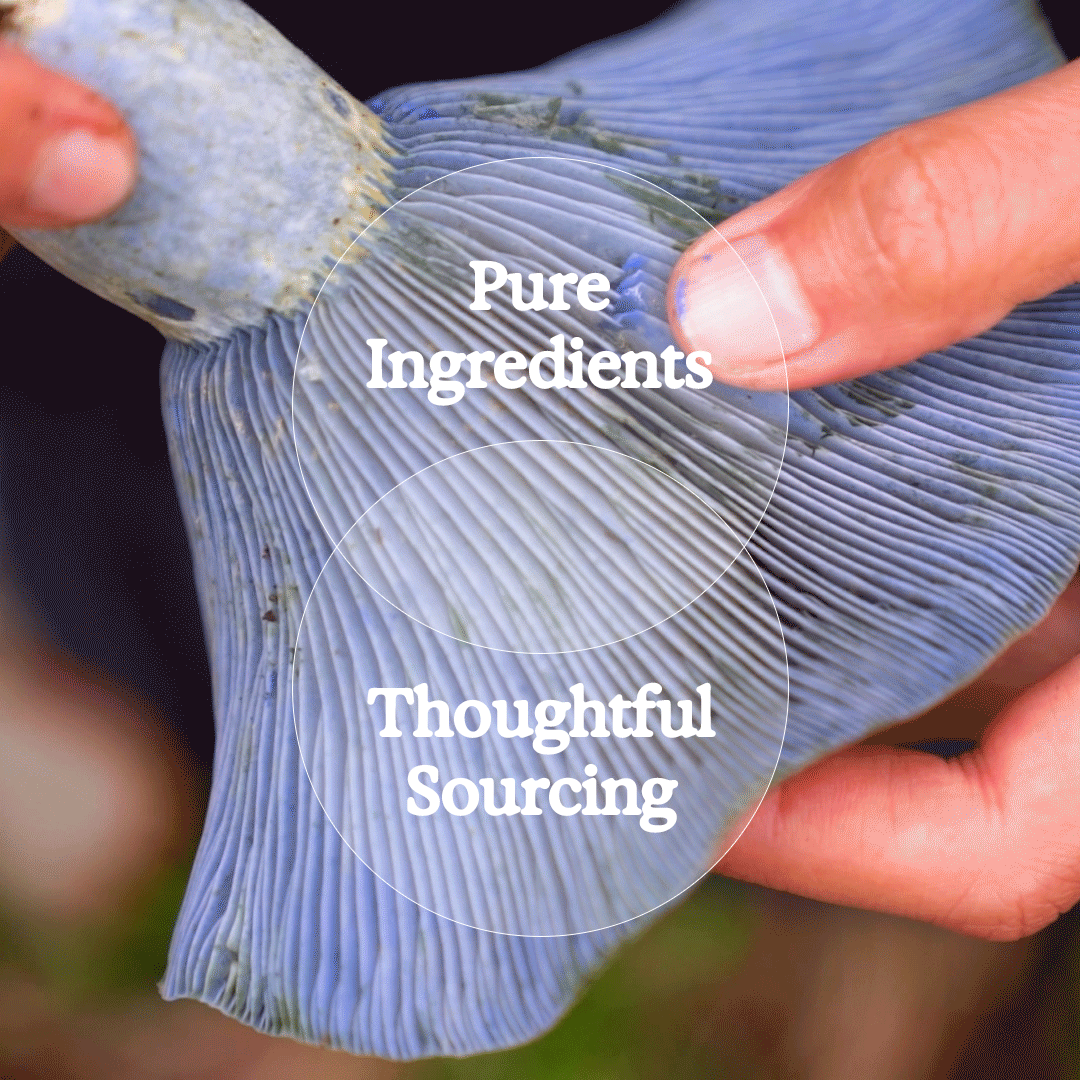
Rainbo products combine potent, earth-safe ingredients with responsibly-cultivated mushrooms to bring you the best that nature and science have to offer.
Our Ingredients
Rainbo products combine potent, earth-safe ingredients with responsibly-cultivated mushrooms to bring you the best that nature and science have to offer.
Our formulas are as pure as it gets; we do not use any genetically engineered crops for production and we cultivate all of our mushrooms right here in Canada.
Rainbo tinctures are made using:
Spring water - living water from deep earth aquifers.
Pure Ethyl Alcohol - A high-proof, cane-derived alcohol that is organic, GMO-free and of pharma-grade quality.
Glycerin - Our glycerin is vegetable based and is ethically and sustainably produced from flax seeds. Though it’s palm-free, organic, and vegan, it still meets the standards of pharmaceutical-grade glycerin.
Our Sourcing Methods
We do not wild-source our mushrooms because mushrooms belong in nature! Keeping them there means they can propagate their mycelial network, spread their spores near and far, and help sustain nature’s ecosystems. Instead, we safely cultivate our mushrooms at a facility in Canada. We do wildcraft a few of our mushrooms like Chaga and some of our Turkey Tail too (which is the most abundantly growing fungi in North America).
Packaging + Recycling Instructions
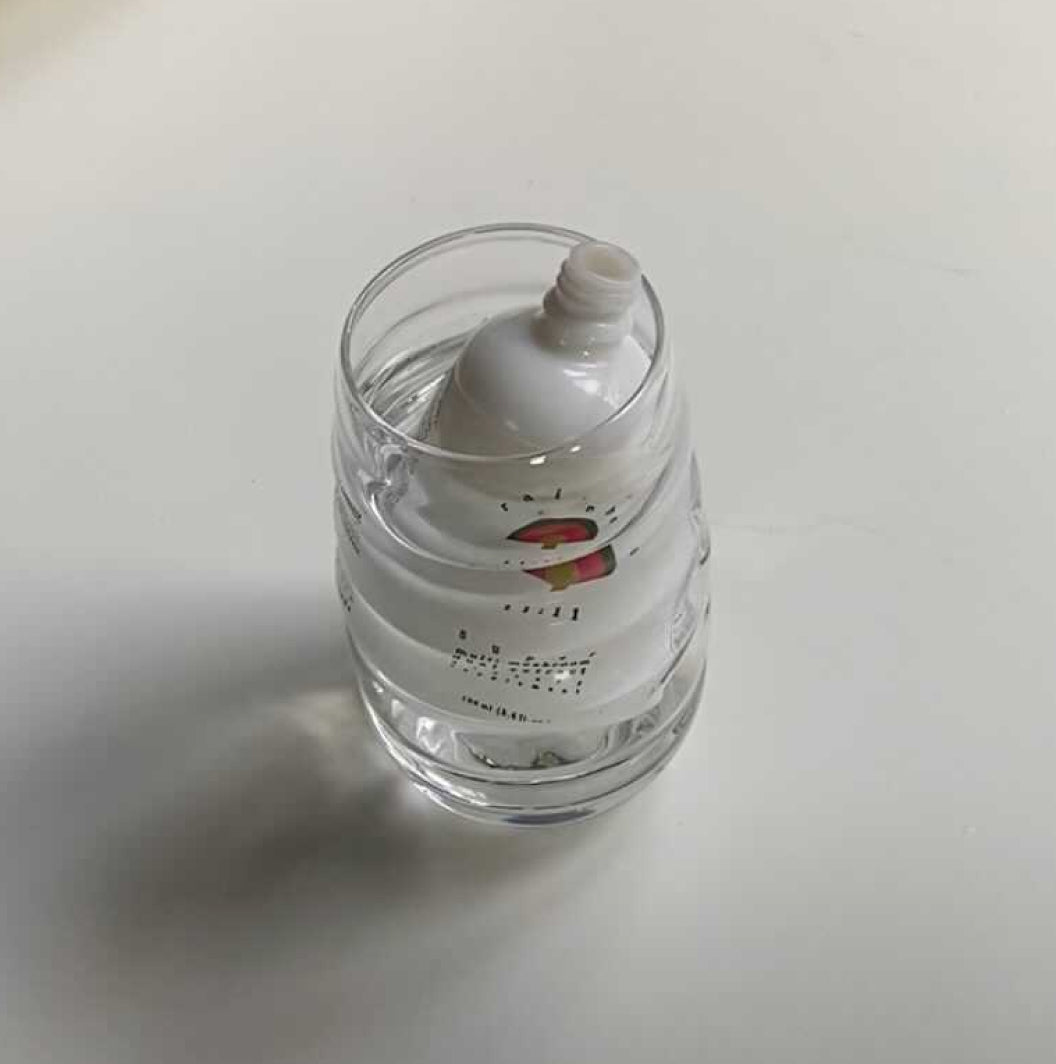
As proud mushroom stewards, we strive to ensure that what we take from the earth is always given back in full.
Here’s how our packaging and recycling practices are pushing our sustainability efforts forward:
Sustainable Materials
- The labels on our tinctures are made of 100% post-consumer waste uncoated paper
- The liners in our shipping boxes are 90-100% (post-consumer recycled) material
- Right now, we source our packaging materials from Canada, the USA, and China
- Our 100ml glass bottles are infinitely recyclable and reusable!
- Glass is always our first packaging choice, but we also use bamboo, post-consumer resin, and silicone in our primary packaging
How to Recycle Rainbo
All of our tinctures follow the same recycling method. Follow these steps to ensure your Rainbo empties make it into the recycling stream:
- Make sure your bottle is empty (you don’t want to waste any mushroom goodness!)
- Rinse it out with warm soap and water, as glass bottles with remaining contents may not get recycled
- Disassemble the lid - squeeze out the glass pipette, push the silicon bulb through the bamboo top and rinse each piece
- Place the bottle in your home recycling bin or repurpose it as a kitchen or household item
- The lid, once disassembled, may be recycled though you should inquire with your local recycling program due to the small pieces
- Find a local herbalist and ask if they would like your cleaned glass bottles
Shipping + Supply Chain
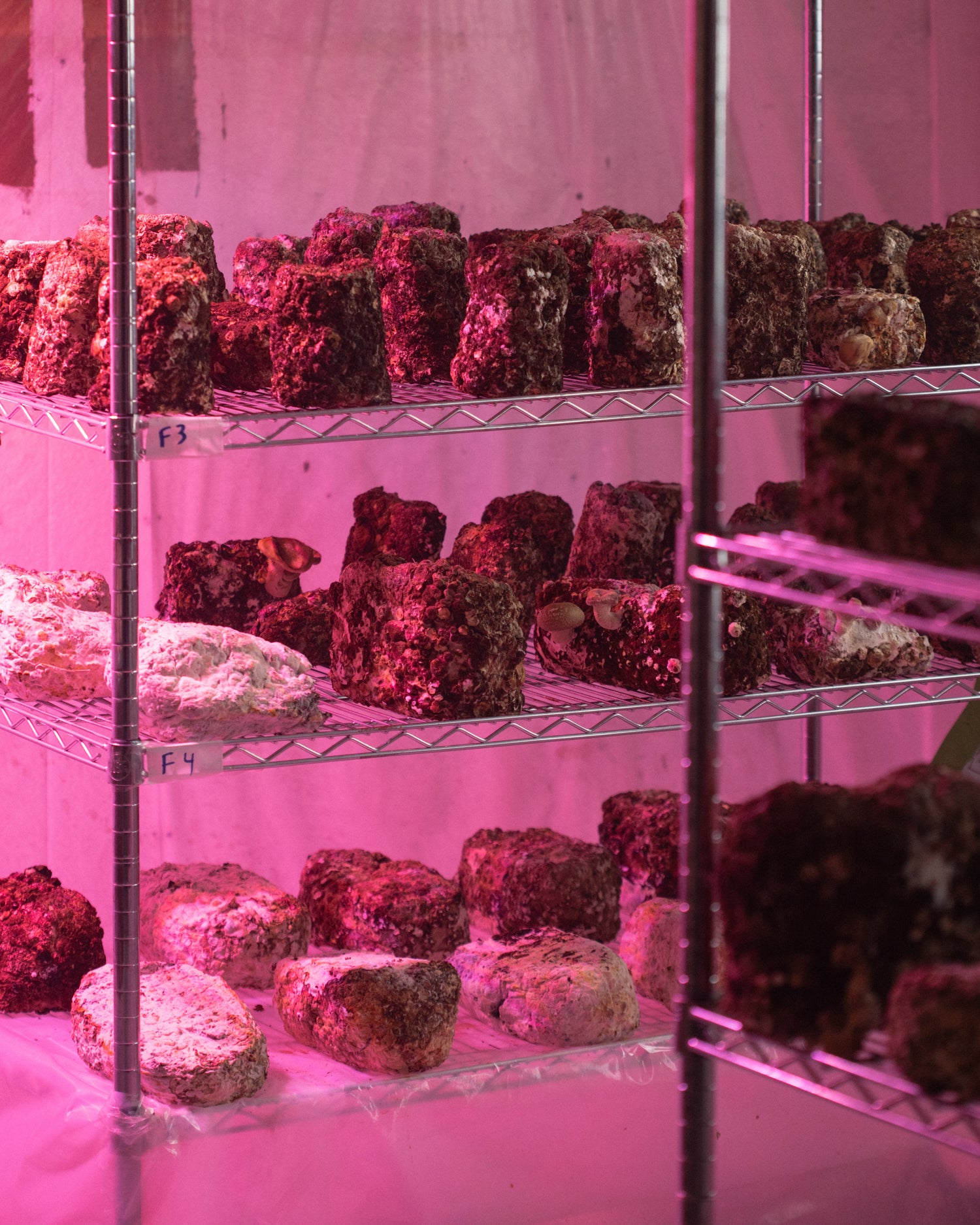
We are mindful that getting Rainbo into your hands places a burden on Mother Earth. We actively seek innovative shipping & supply chain strategies to lighten the load and opt for the methods that respect our planet most:
Supply Chain
- We manufacture and ship all of our Canadian products out of Ontario, Canada, where our team is based.
- We’ve added additional shipping outposts on the east and west coasts of the US to get Rainbo to our US friends in a more carbon efficient way.
Shipping
We are mindful that getting Rainbo into your hands places a burden on Mother Earth. We actively seek innovative shipping & supply chain strategies to lighten the load and opt for the methods that respect our planet most:
- Our boxes are manufactured using repurposed cardboard and linerboard from old corrugated containers, newspapers, magazines, office waste, and printer waste. They are 100% recyclable and biodegradable. We avoid using virgin corrugate at all costs.
- Our box inserts are also recyclable and biodegradable. Recycle or compost them at home.
- The kraft paper used to ship Rainbo is made from post-industrial resin and post-consumer resin.